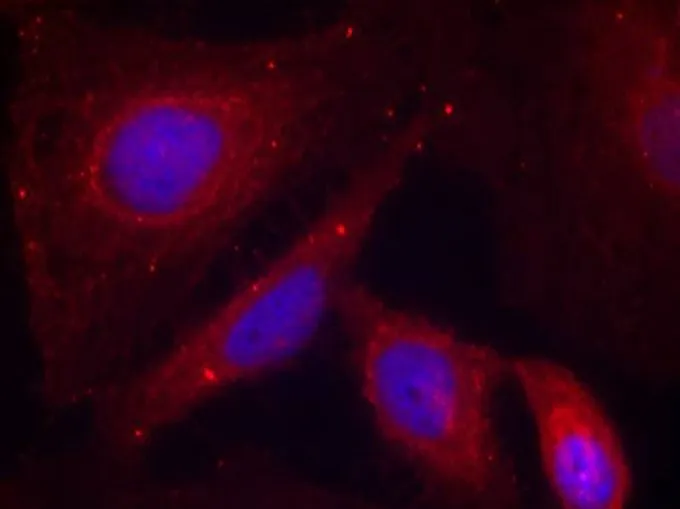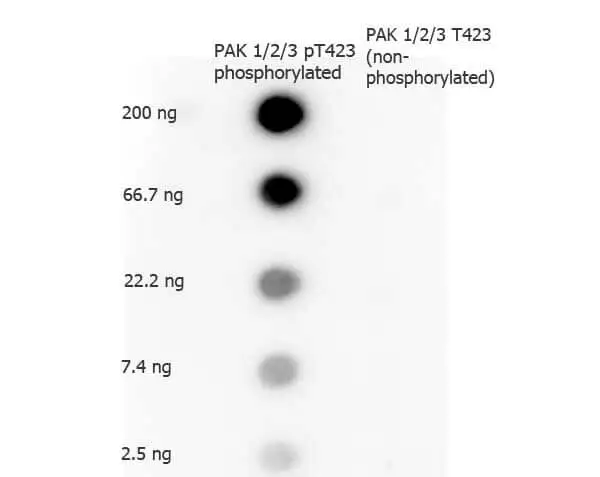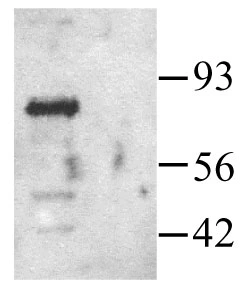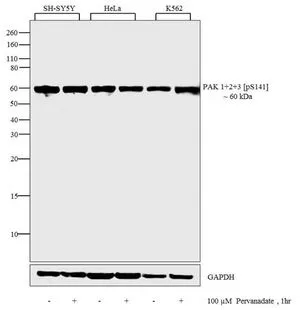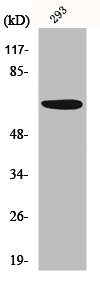PAK1 antibody
GTX111208
ApplicationsWestern Blot, ImmunoHistoChemistry, ImmunoHistoChemistry Paraffin
Product group Antibodies
TargetPAK1
Overview
- SupplierGeneTex
- Product NamePAK1 antibody
- Delivery Days Customer9
- Application Supplier NoteWB: 1:500-1:3000. IHC-P: 1:100-1:1000. *Optimal dilutions/concentrations should be determined by the researcher.Not tested in other applications.
- ApplicationsWestern Blot, ImmunoHistoChemistry, ImmunoHistoChemistry Paraffin
- CertificationResearch Use Only
- ClonalityPolyclonal
- Concentration0.9 mg/ml
- ConjugateUnconjugated
- Gene ID5058
- Target namePAK1
- Target descriptionp21 (RAC1) activated kinase 1
- Target synonymsalpha-PAK; IDDMSSD; p21 protein (Cdc42/Rac)-activated kinase 1; p21/Cdc42/Rac1-activated kinase 1 (STE20 homolog, yeast); p21/Cdc42/Rac1-activated kinase 1 (yeast Ste20-related); p65-PAK; PAKalpha; serine/threonine-protein kinase PAK 1; STE20 homolog, yeast
- HostRabbit
- IsotypeIgG
- Protein IDQ13153
- Protein NameSerine/threonine-protein kinase PAK 1
- Scientific DescriptionPAK proteins are critical effectors that link RhoGTPases to cytoskeleton reorganization and nuclear signaling. PAK proteins, a family of serine/threonine p21-activating kinases, include PAK1, PAK2, PAK3 and PAK4. These proteins serve as targets for the small GTP binding proteins Cdc42 and Rac and have been implicated in a wide range of biological activities. PAK1 regulates cell motility and morphology. Alternativelt spliced transcript variants encoding different isoforms have been found for this gene. [provided by RefSeq]
- Storage Instruction-20°C or -80°C,2°C to 8°C
- UNSPSC12352203
References
- Knockdown of miR-665 Protects Against Cardiomyocyte Ischemia/Reperfusion Injury-Induced ROS Accumulation and Apoptosis Through the Activation of Pak1/Akt Signaling in Myocardial Infarction. Liu C et al., 2020 Mar 28, Int Heart JRead more



